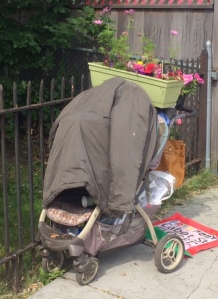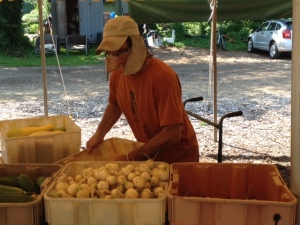To those who wonder whether our President has racist and nativist tendencies, here is your answer. A quote from today’s New York Times: https://www.nytimes.com/2018/01/11/us/politics/trump-shithole-countries.html?ref=todayspaper
President Trump on Thursday balked at an immigration deal that would include protections for people from Haiti and some nations in Africa, demanding to know at a White House meeting why he should accept immigrants from “shithole countries” rather than from places like Norway, according to people with direct knowledge of the conversation.
Where does such arrogance and callousness come from? Perhaps he has never met people who live in a developing nation or live in poverty here in the States.
If he did he would meet people who work incredibly hard in difficult situations to provide for their family. He’d meet young people of great intelligence, who dream and aspire. He’d meet moms and dads who worry and weep for their children who lack access to clean water and medical care.
If he did perhaps he’d learn some humility and compassion. This man who was born to great wealth and given every opportunity.
To refer to those who struggle and aspire as living in ‘shithole countries’ is an insult to the beautiful people I’ve met and served with in developing countries. His callousness is an insult to my great-great grandmother Sarah, a single woman who gave birth to her son in a work house in Manchester, England in 1867. A place where the poorest of the poor went, when no one else would take them in.
In 1869 Sarah emigrated to the United States with her two year old son. A single mother, dirt poor. She made a way for herself by working in the textile mills of Rhode Island. I am here because she had the strength and courage to make a new life. I am here because the United States said there is a place for people like Sarah and her boy.
For Mr. Trump to disparage those who struggle and strive against overwhelming circumstance, to provide for their family, is a disgrace. A disgrace to what it means to be an American. A disgrace to what it means to be a Christian. A disgrace to what it means to be a human being.
What will we do? As citizens will we allow this callous and shallow man to redefine who we are as a country?
As people of faith, inspired by the words of Jesus in Matthew 25:40 ‘whatever you do unto the most vulnerable of my sisters and brothers you do unto me’… what will we say? What we will do?
In my Christian tradition this is called a ‘come to Jesus moment’. It is time for my fellow Christians, who have so freely embraced Trump, to stand up and say ‘no more’, ‘not in my name’.
We as a nation and as citizens of the world, deserve better than this man who lacks humility and a shred of compassion. The eyes of the world are upon us. What will we do?




